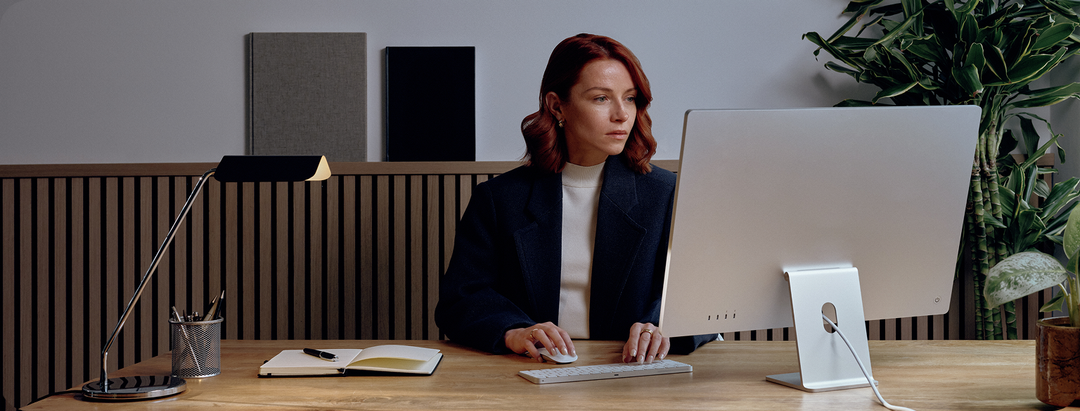
Your guide to buying a property in Italy
Product · 29 October 2025Clément Bolmont
Buying a property in Italy offers access to beautiful scenery and a relaxed lifestyle. However, approaching the Italian market as a foreign buyer requires careful preparation.
The process of buying property in Italy involves distinct legal, administrative, and financial steps that differ from those in the UK. In Italy, the notaio — an impartial public official who witnesses documents and transactions — holds a central role in the transfer of ownership. Without the right knowledge, it’s easy to get caught out by unexpected costs or bureaucratic hurdles.
But don't worry — in this guide, we walk you through the entire journey, from getting your initial paperwork in order to signing the final deed. We show you exactly how we can help you navigate the financial side of your international life, making the transfer of large sums of money as clear and easy as possible.
Learn more about how we simplify large international transfers.
Legal and financial foundations for buying a home in Italy
Before you even begin viewing homes for sale in Italy, you need to establish your legal identity and financial plan. All foreign property buyers must follow these initial steps.
Securing your Codice fiscale
The most important document for your purchasing journey is the Codice fiscale.
The Codice fiscale is a unique alphanumeric code that acts as your taxpayer identification number in Italy. You need it for almost every step of the process, including:
- Opening an Italian bank account
- Signing a purchase offer (proposta d'acquisto) and any contracts
- Paying taxes and local fees
- Applying for an Italian mortgage
- Setting up utilities
You can apply for your Codice fiscale in 3 ways: in person at an Italian embassy or consulate in the UK, in person at a local branch of the Agenzia delle Entrate (Revenue Agency) in Italy, or by granting power of attorney to a notaio or solicitor to handle the application on your behalf. We recommend starting this process as soon as possible, since you need your Codice fiscale before you can follow the next steps.
Budgeting for the true cost of purchasing a property in Italy
A common mistake made by foreign buyers is focusing only on the purchase price. In Italy, additional costs can add an extra 12–20% of the sale price to your total budget.
It's important to factor in these costs from the start, as they must be paid on or around the day of completion.
Cost category | Typical range | Notes |
Transfer taxes | 9–10% | Depends on if the seller is a private individual (9% registration tax) or a company (10% VAT) |
Agency fees | 2–4% and VAT | Paid by the buyer to the estate agent for mediation services |
Notary fees | 1–2.5% | Legally regulated fees for finalising the deed and registering ownership |
Legal fees | 1–2% | Solicitor fees for due diligence and managing the process (optional but highly recommended) |
Mortgage costs | Variable | Includes valuation fees and relevant taxes on the mortgage deed |
By factoring in this extra 12–20%, you can prepare yourself financially for your home purchase in Italy. Some sources suggest that non-resident buyers should budget for at least 15% above the base price for associated costs.

The step-by-step Italian home buying process
The buying process in Italy follows a structured and legally defined sequence of steps, which typically takes 2–4 months from the accepted offer to the final signing.
Finding homes in Italy for sale and appointing your team
Your search for the ideal property is best supported by a trusted local team. While property portals are great for browsing homes for sale in Spain, a good team is essential for protection and guidance.
- Estate agents (agenzia immobiliare): they help you find properties and negotiate prices. Importantly, both the seller and the buyer typically pay them an agency fee (2–4% of the purchase price).
- Independent notaio (notary): this is the public official who drafts and executes the final deed of sale (atto notarile di compravendita). They act impartially, ensuring the transfer complies with Italian law. You have the right to choose them yourself.
- Independent solicitor (avvocato): while optional, hiring an independent solicitor who specialises in Italian property law and speaks English is highly recommended. They conduct the critical legal checks to protect you.
- Surveyor (geometra): they check the structural and planning compliance of a resale property.
Making an offer and the preliminary contract (compromesso)
Once you find the right property, your agent or solicitor submits a formal, written offer (proposta d'acquisto). If accepted, the process moves to 2 distinct contract stages:
- Purchase offer (proposta d'acquisto): you usually pay a small reservation deposit at this point. This takes the property off the market for a set period (usually 10–14 days) while initial checks are carried out. This deposit is generally non-refundable if you pull out without a legally justifiable reason.
- Preliminary contract (contratto preliminare di compravendita): also known as the compromesso, this is a legally binding agreement that confirms the sale price, the completion date, and the terms of the sale.
After signing the compromesso, you pay the remaining deposit to bring the total up to 10–20% of the purchase price. This contract enforces heavy penalties for either party backing out:
- If the buyer withdraws, they lose the deposit (caparra confirmatoria)
- If the seller withdraws, they must pay the buyer double the deposit amount
Don't sign the compromesso until your notary or solicitor has carefully looked at the property's legal status.
Due diligence: why legal checks are vital
Before the compromesso is signed, your legal team conducts essential due diligence to ensure you're buying a safe, legal, and debt-free property.
Your solicitor or notary will verify:
- Ownership and debt: they check the catasto (land registry) to confirm the seller is the legal owner and that the property is free of mortgages, liens, or existing debts.
- Planning compliance: they confirm that the property has all necessary building permits and is compliant with local zoning regulations. Unauthorised structures or extensions can prevent a future sale.
- Tax and utility arrears: they check with the local municipality to ensure all local property taxes (IMU) and community fees (spese condominiali) are up-to-date. In Italy, debts often stick with the property.
Finalising the deal: money, taxes, and completion
The final stage involves securing financing, paying the balance, and completing the legal transfer of ownership before the notaio.
Navigating non-resident mortgages
While it's possible for foreign buyers to get a mortgage from an Italian bank, the terms are often stricter than for Italian residents.
- Loan-to-value (LTV): non-residents are typically offered a maximum LTV of 50–60% of the property’s valuation or purchase price. This means you need a minimum 40–50% deposit, on top of the 12–20% in associated purchase costs.
- Application process: be prepared for a lengthy process. Italian banks will require extensive documentation regarding your income, assets, and liabilities. Start this process as soon as your offer is accepted.
Simplifying large international money transfers
When paying the initial deposit, the compromesso payment, and the final balance, you need to transfer substantial sums from pounds (GBP) to euros (EUR).
Fluctuating exchange rates and hidden bank fees can significantly increase the total cost of your Italian property purchase. Traditional banks often apply large mark-ups on the exchange rate or charge high fees for large international transfer payments.
Our goal is to support you through these life events. We allow you to convert and hold euros in your account, providing clarity on the exchange rate before you commit to the transfer. Our quick and straightforward international payments mean you can send the reservation fee, the deposit, or the final balance on time, without unexpected charges or delays.
Make your money work harder for your dream Italian home. Get started with us and see our competitive currency exchange rates.

The role of the notaio and the final deed
The final stage of the purchase is signing the deed of sale (atto notarile di compravendita) at the notaio's office.
On the day of completion:
- The final payment (usually a bank cheque or transfer) is exchanged
- The notaio reads the atto notarile aloud (often translated for the foreign buyer)
- Both the buyer and seller (or their legal representatives) sign the deed
- The keys are handed over, and the property is legally transferred to you
The notaio then makes sure the deed is registered with the local authorities and the land registry, finalising the purchase.
As we mentioned before, there are some extra costs you must be prepared for at completion. All taxes must be paid to the relevant tax authority shortly after the signing of the deed. Your notaio is responsible for managing these payments on your behalf.
Life as an Italian homeowner: post-purchase duties
The duties of an Italian property owner continue even after you have the keys. As a foreign owner, you must remain compliant with Italian tax and local administrative rules.
Ongoing taxes for expat home purchases in Italy
If you're a non-resident, you have 2 primary annual tax obligations:
- Imposta municipale unica (IMU): this is the local council tax, paid annually to the municipality. Unlike the UK, the IMU isn't due on your primary residence (if you officially move to Italy), but it is applicable to second homes or properties owned by non-residents.
- Tassa sui rifiuti (TARI): the waste tax, paid annually and mandatory for all property owners.
- Income tax: if you choose to rent out your property, you must declare and pay tax on the rental income.
It's a good idea to hire a specialised commercialista (accountant) to ensure these annual returns and payments are filed correctly.
Managing utilities and community fees remotely
If you don't live in your property full-time, managing regular bills can be a challenge. You need to:
- Set up Direct Debits (domiciliazione bancaria): utility companies (for water, electricity, and gas) and condominio (community) administrations typically require Direct Debits from a local bank account.
- Pay Community fees (spese condominiali): these are mandatory fees for the upkeep of common areas (like lifts or gardens) if your property is part of a shared building or complex (condominio). Failure to pay these can result in legal action.
Our multi-currency personal account makes managing these expenses easier. You can hold euros to cover your bills, ensuring local payments are always made on time and in the correct currency, without recurring charges from your UK bank.

Ready to buy your home in Italy?
Buying property in Italy is exciting, and while the process requires legal and administrative diligence, managing the money doesn't have to be complicated.
We provide the tools you need to manage the finances for your new home with clarity and confidence. Here's how to start your journey:
- Download our app.
- Follow the easy steps to open your account in minutes.
- Choose the Personal account that fits your needs. For higher limits and travel perks, we recommend checking out our paid plans.
- Once set up, you can start converting and managing your money across borders, ready for those important property payments.
The information provided is accurate as of 22 October 2025.
The content of this page is for general information purposes only and does not constitute financial advice. If you have any questions about your personal circumstances, please seek professional and independent advice. Revolut is not a financial adviser.
Exchange fees, remittance fees, fair usage limits, and T&Cs apply.